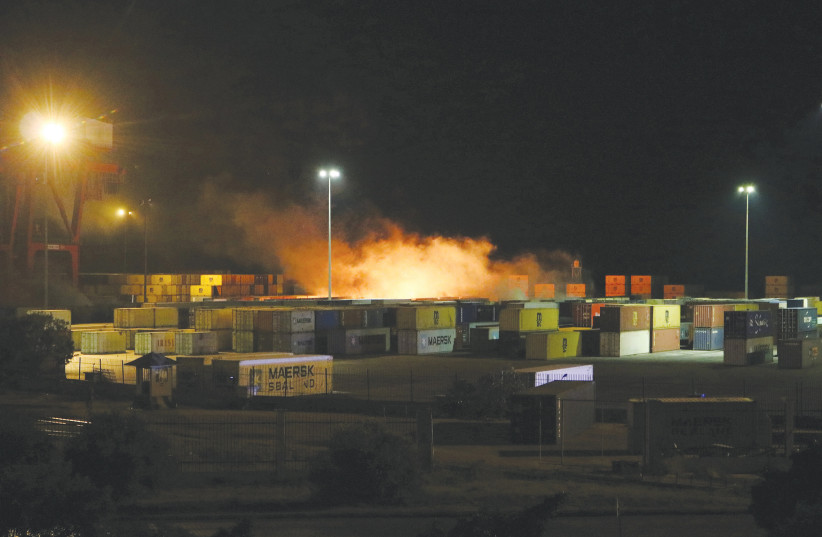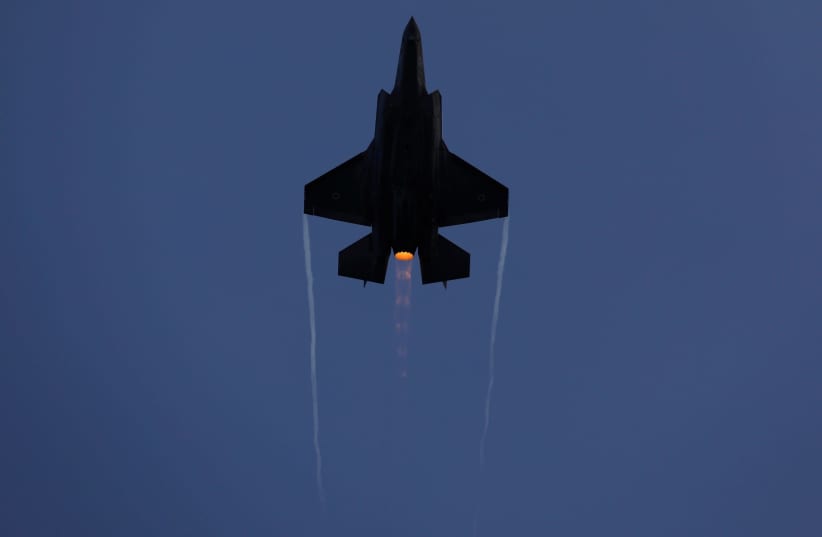A week into Russia’s invasion of Ukraine, Israel has yet to take a clear public stance on the war, worried about how it could affect its relationship with Moscow in the skies of Syria. And with that, it risks its alliance with the United States.
Russia intervened in the Syrian conflict in September 2015 on the side of embattled President Bashar Assad, and Moscow is seen as the main power to speak with when Israel wants to carry out strikes in the country.
Read more on the Russia-Ukraine War:
- Day 7 of the Russian invasion of Ukraine
- Ukraine foils assassination attempt on Zelensky by Chechen special unit
- Pro-Putin Chechen general who led 'gay purge' killed in Ukraine
- Russia strikes Babyn Yar Holocaust memorial site in Ukraine
- $1 million bounty on Putin offered by Russian businessman
Israel’s war-between-wars campaign is one of utmost importance and has seen hundreds of airstrikes against Iranian and Hezbollah targets in the country, including convoys of advanced weaponry heading to Lebanon. Dozens of clandestine operations are also alleged by foreign media to have occurred in Syria and Lebanon against targets that threaten the Jewish State.
The two players have been using a deconfliction mechanism in order to avoid any unwanted conflict and, with it, Russia has allowed Israel to maintain its freedom of operation over Syria, as long as it does not endanger its forces.


With Russia turning a blind eye to strikes, Israel says it has been able to significantly disrupt the smuggling routes by land, at sea and in the air, and achieve satisfactory results in Israel’s campaign against what Prime Minister Naftali Bennett calls the “Iranian octopus.”
Prior to Russia’s invasion of Ukraine, Russian Defense Minister Sergei Shoigu traveled to Syria and spoke with Assad about military-technical cooperation.
He also visited Hmeimim airbase which serves as Russia’s main base in the country amidst a large-scale military drill over the Mediterranean. There, Russia has deployed MiG-31K fighter jets with hypersonic Kinzhal missiles that can reportedly hit targets up to 2,000 kilometers away and long-range Tupolev TU-22M strategic bombers to the airbase.
The aircraft took part in naval drills in the eastern Mediterranean that involved at least 15 warships and 30 aircraft at a time when tensions remained high between the West and Moscow.
Moscow had been building its forces along Ukraine’s borders at that time. With Shoigu’s visit, Israel undoubtedly saw and understood the hint from Russia: Keep quiet unless you want your northern border to become far more complicated.
But would it really become so complicated that Israeli jets would not be able to continue striking in Syria? Does the war-between-wars campaign hedge on Russian cooperation?
Putin can of course take revenge should Bennett finally make it clear that Israel is against the invasion of Ukraine. He could tell his forces in Syria to halt the security coordination. He could turn over the advanced S-300 and S-400 missile batteries to Syrian troops and could even have his pilots intercept Israeli planes in Syrian skies.
But Putin isn’t agreeing to turn a blind eye to Israeli strikes because he feels like it. For Putin, Israel is doing the dirty work in Syria and he will reap the benefits.
LIKE ISRAEL, Putin also wants to remove Iran from Syria in order to take full control over the rebuilding of Syria. The biting sanctions leveled on Russia following its invasion of Ukraine will only encourage Putin even more to be the sole re-builder of Syria.
With Putin already threatening to use nuclear weapons against the West, additional threats by Putin related to the Middle East must be taken seriously.
On the other hand, remaining silent also risks Israel’s alliance with the United Nations and other Western nations.
Israel has received political, economic, technological and military support from the Americans for decades, and it is essential for its security. Without American backing, Israel would not have its various air defense systems or advanced fighter jets, and countless other quantities of military hardware which ensure its qualitative military edge in the region.
Its alliance with the United States and other Western nations has also provided Israel with intelligence that is essential for its war-between-war campaign as well as other regional operations.
While not a member of NATO, Israel is considered a “major NATO partner” and cooperation between the two has increased, according to foreign reports, substantially in terms of military drills, cyberwarfare, and intelligence sharing.
Though Israel will not likely become a member of NATO, choosing to remain silent in the face of an invasion of a European state will not play well with member states and even with non-NATO members rushing to provide aid to Ukraine’s military.
Israel has provided 100 tons of humanitarian aid to Ukraine, and while that is a start, Israel can and should do more. It does not have to provide missile defense systems like the Iron Dome, but it can give the green light to countries who have bought Israeli weapons systems like the SPIKE missile manufactured by state-owned Rafael.
The anti-tank missile like the Javelin and NLAW has become a key weapon in halting the advance of armored Russian convoys, and thousands more of these will soon be in the hands of Ukrainian fighters thanks to Western nations.
The addition of the SPIKE would give additional advanced capabilities, however, at the moment, the Defense Ministry has not changed its stance and is not planning to.
Israel’s choice to delicately sit on the fence between its moral duty to help Ukraine and its obligation to protect its own citizens from Iranian and Hezbollah threats is not that easy. But the war in Ukraine will not be over soon; not before unimaginable death and destruction at the hands of Russia.
Israel still has the chance to figure out how to support Ukraine with military means, to save the country from a Russian occupation while continuing its strikes in Syria.
It is possible. To paraphrase Theodor Herzl, where there is a will, there is a way.
